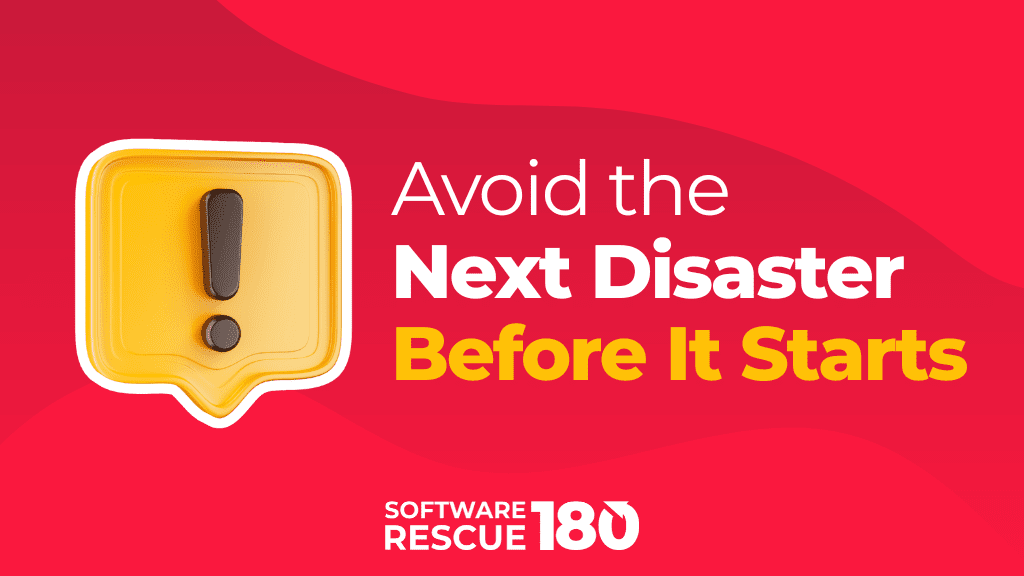We don’t just rescue projects at Software Rescue 180. We help prevent the next disaster.
Because let’s be honest: the second failure stings more than the first.
After years of saving troubled software projects, we’ve spotted the patterns. The politics. The mistakes that keep getting made. This isn’t theory — it’s hard-won lessons from the trenches.
Here’s what to watch out for.
Mistake #1: Starting Fast Instead of Starting Right
Speed feels good early on. Until it turns into technical debt, chaos, and rewrites. Teams skip planning, overpromise, and under-validate.
Avoid it: Make time for a sane tech strategy. Validate the problem before building the solution.
Mistake #2: Hiring Too Junior, Too Fast
Founders often try to save money by hiring a team of juniors or freelancers without senior oversight. It usually costs more in the long run.
Avoid it: Hire slow, or hire experience. Or both. A single seasoned lead can save you from a dozen bad hires.
Mistake #3: Building Without a Feedback Loop
We’ve seen teams spend months building features no one uses. Why? No user validation. No stakeholder feedback. No checkpoints.
Avoid it: Build in short, validated cycles. Get real input, early and often.
Mistake #4: Letting Politics Stall Progress
Internal turf wars, unclear ownership, and decision paralysis kill more projects than bugs ever do.
Avoid it: Clarify roles. Empower decision-makers. Keep politics out of product.
Mistake #5: Ignoring the Early Warning Signs
Most software disasters don’t explode overnight. They simmer. If you’re hearing whispers of burnout, missed commits, or confused priorities, pay attention.
Avoid it: Create a culture where red flags are raised early — and acted on fast.
What We’ve Learned
Every project is different. But the traps are surprisingly familiar. The best way to prevent a disaster isn’t to hope for better luck. It’s to learn from past fires — yours or someone else’s.
We’ve walked through the wreckage. And we can help you build smarter.
Ready to future-proof your next project? Let’s talk.

